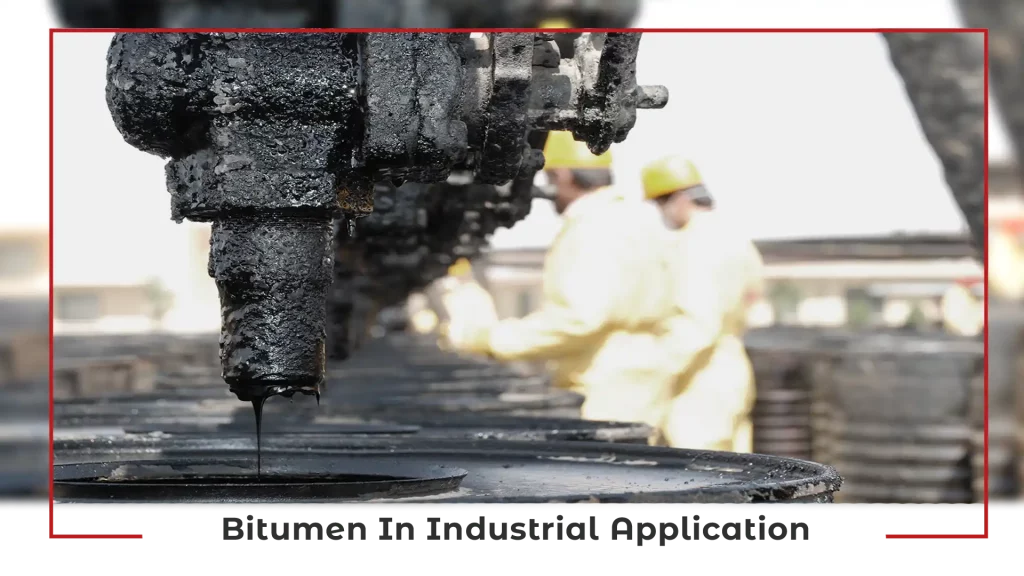Introduction
Bitumen, often likened to a sticky, tar-like substance, serves as a cornerstone in numerous industrial applications. Renowned for its integral role in asphalt production, bitumen has found a diverse range of uses, from roofing and waterproofing to pavements and beyond. In this comprehensive guide, we will delve into the myriad benefits of utilizing bitumen for industrial purposes. Additionally, we will provide invaluable insights into selecting the most suitable bitumen variant for specific needs.
Benefits of Using Bitumen for Industrial Applications:
Bitumen boasts a plethora of advantages that render it a favored choice for industrial applications, including:
- Durability: A hallmark of bitumen is its remarkable durability, enabling it to withstand a wide spectrum of environmental conditions. Impervious to water, chemicals, and the relentless assault of UV radiation, bitumen remains unyielding over time.
- Strength and Flexibility: The inherent strength of bitumen equips it to bear substantial loads, making it an ideal candidate for applications requiring structural integrity. Moreover, its flexibility imparts the resilience necessary to endure movement and vibrations without compromising its integrity.
- Affordability: One of bitumen’s most appealing attributes is its cost-effectiveness. Its affordability, combined with its exceptional performance characteristics, makes it an economically sound choice for various industrial ventures.
Tips for Choosing the Right Bitumen for Your Needs:
- Application Type: The nature of the intended application dictates the suitable bitumen variety. For instance, if the objective is roofing, opt for a bitumen type resistant to water and UV radiation to ensure longevity.
- Climate Considerations: The climate in which the bitumen will be employed plays a pivotal role in selecting the appropriate variant. Cold climates demand bitumen varieties resistant to cracking, safeguarding against temperature-induced damage.
- Budget Allocation: Financial constraints inevitably impact material choices. While bitumen offers affordability, align your selection with the budget allocated for the project.
Bitumen for Industrial Applications: A Comprehensive Approach
Bitumen in Road Construction and Pavements:
Bitumen’s most prominent role lies in road construction and pavements. In the form of asphalt concrete, a blend of bitumen and aggregates, it forms the robust top layer of roads, conferring a smooth and enduring driving surface. Furthermore, its noise reduction and skid resistance properties contribute to safer roadways.
Bitumen in Roofing and Waterproofing:
The waterproofing prowess of bitumen shines in roofing applications. Bitumen-based materials, such as membranes and shingles, provide optimal water resistance, culminating in leak-proof roofing systems. This reliability extends to industrial structures, enhancing their longevity.
Bitumen in Industrial Coatings:
Bitumen’s protective capabilities make it an invaluable asset in industrial coatings. It safeguards pipelines, tanks, and equipment against corrosive elements, bolstering their operational lifespan while minimizing maintenance requirements.
Bitumen in Paving and Driveways:
For driveways, parking lots, and walkways, bitumen-based paving materials offer an enticing blend of durability and ease of installation. These surfaces withstand heavy traffic loads and resist wear and tear.
Bitumen in Soundproofing:
Bitumen’s noise-dampening qualities position it as a crucial ingredient in soundproofing materials, contributing to acoustically optimized environments in buildings, theaters, and recording studios.
Bitumen in Battery Production:
Bitumen’s modified variants find a niche in battery production. Its inclusion enhances battery performance, exemplifying its adaptability beyond traditional applications.
Advancements in Bitumen Technology:
The dynamic landscape of bitumen technology has birthed innovative products tailored to precise requirements:
- Modified Bitumen: The fusion of bitumen with polymers results in polymer-modified bitumen (PMB), renowned for heightened elasticity, durability, and resistance. It thrives in high-stress zones of road pavements and roofing.
- Warm Mix Asphalt: This groundbreaking technology permits asphalt production and placement at lower temperatures, minimizing energy consumption and emissions during construction.
- Nano Bitumen: The realm of nanotechnology ushers in nano bitumen, renowned for augmented strength, flexibility, and resistance to temperature fluctuations.
- Recycled Bitumen: Environmental consciousness drives the resurgence of recycled bitumen, promoting sustainability by curbing demand for new material and mitigating ecological impact.
Conclusion Bitumen for Industrial Applications
Bitumen, a versatile and robust material, continues to weave its influence across a multitude of industrial sectors. Its durability, strength, and affordability underpin its prominence in applications ranging from road construction and roofing to industrial coatings and beyond. By judiciously selecting the appropriate bitumen variant based on application, climate, and budgetary constraints, industries can harness the full potential of this remarkable substance. As innovation paves the path for novel bitumen technologies, the future holds a promising tapestry of sustainable and high-performance industrial applications, firmly cementing bitumen’s status as a stalwart in modern industrial endeavors.

